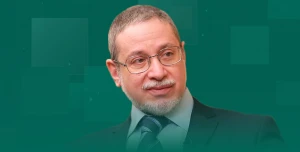
Foreign instructors in Ukraine to become target for Russia without air defense - historian Czech
Ukraine continues to defend its independence from Russian aggression, and one of the key aspects of this process is the presence of foreign instructors in the country
Historian and publicist Mirosław Czech spoke about this in an interview with Antin Borkovskyi, host of the Studio West program.
When asked why we are talking about a hundred or a thousand instructors, when it could be ten, twenty or even thirty thousand, he replied: "You're absolutely right: it doesn't matter how many there are, a hundred or so. What is important today is that the Western powers are not sending them or will not send them to die on the frontlines in Ukraine - this is obvious. This means covering the Ukrainian sky so that they are safe, because they will be the first targets."
The Czech recalled the events of 2021, when a new Russian offensive was discussed.
"American and British instructors were on the territory of Ukraine, and it was decided that Washington and London would first withdraw their instructors, then their embassies, as you know. And then there was a realisation that the West did not really believe in Ukraine, and the scenario that was going to be played out with Javelin and NLAW and so on was the West would have to repeat the scenario from Afghanistan or Syria: destruction of cities and so on, extraordinary casualties. I remember my great indignation, I think in politics you can't do that irresponsibly. But this was the understanding of the situation," the historian explained.
The publicist misses the fact that the instructors may already be in Ukraine: "When it comes to NATO troops in Ukraine, or NATO countries, let's say, or instructors, I would pay attention to this first of all. Because they will be there. Or maybe there are already instructors."
He also mentioned the reactions of other countries to the sending of French instructors to Ukraine.
"In order to influence Western opinion, Le Pen has already said: you see, Macron is already preparing us to take part in the war. Populists and various friends of Putin are doing this policy. Orban even said that they are irresponsible for allowing themselves to do this. We understand everything. We are recording it. In your programme, you said that the West is beginning to understand that all these decisions, the totality of these decisions that we have been talking about, should begin the final stage of Russian aggression against Ukraine," Czech concluded.
Presence of NATO forces in Ukraine
On February 26, about 20 European leaders met in Paris to discuss the threats posed by Russian leader Vladimir Putin. They were addressed by Ukrainian President Volodymyr Zelenskyy.
After the conference, French President Emmanuel Macron announced that the deployment of Western ground troops to combat Russian aggression should not be ruled out in the future.
Slovak Prime Minister Robert Fico confirmed that some NATO and EU member states are allegedly discussing the possibility of sending their troops to Ukraine after signing bilateral agreements with Kyiv.
NATO Secretary General Jens Stoltenberg and the leaders of the Alliance stated that no general decision had been made to send troops to Ukraine, while Russia called the move a declaration of war.
On February 29, Estonian Prime Minister Kaja Kallas said that Western leaders should not rule out the possibility of sending ground troops to Ukraine.
On March 4, Macron said that he would not send troops to Ukraine in the near future, but opened a debate on the issue.
On March 5, Macron called on allies "not to be cowards" with regard to Ukraine and to step up. German Defense Minister Boris Pistorius responded to his call.
Ukraine's Foreign Minister Dmytro Kuleba said that the discussion provoked by French President Emmanuel Macron's words about the deployment of Western troops in Ukraine would save Europe a lot of time in realizing that more needs to be done.
On March 11, Czech President Petr Pavel said that the support of Ukraine by NATO troops directly on its territory would not violate any international norms.
On May 14, it was reported that Sweden was open to sending troops to Ukraine if this proposal was made at the level of NATO member states.
On May 20, the Prime Minister of Estonia supported the deployment of NATO instructors to train the Ukrainian military.
France may announce that it will send military instructors to Ukraine next week during President Zelenskyy's visit to the country.
Lithuanian Prime Minister Ingrida Šimonite announced that the country is ready to send its military instructors to Ukraine to help train the troops.
- News













































